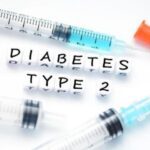-
1,98,689 sample data compiled and studied by Metropolis Healthcare
-
20% have ‘poor control’ in managing diabetes
New Delhi, November 13, 2018:
A recent data analysis done by Metropolis Healthcare, India’s Leading Pathology Chain reveals that 21.63% of samples tested from Delhi have been reported as Diabetic. In order to understand the intensity of the disease, Metropolis Healthcare conducted a comprehensive data study; ahead of World diabetes Day which falls on 14th November. The study included 1,98,689 random samples of people between the age group of 20 and 80 years that were collected for a period of over three years.
Why is HbA1c, The Test Important?
The most critical analysis arising from the study is that only over 11.88% of the samples tested had desirable HbA1c (glycated haemoglobin) Levels. Over 20.24% of samples were reported to be having poor glycaemic control and management. HbA1c is an important test because it helps the clinician suggest appropriate lifestyle changes.
For every 1% reduction in results of HbA1c blood tests, the risk of developing eye, kidney, and nerve disease is reduced by 40% while the risk of heart attack is reduced by 14%.
Over 21.15% of all samples tested for Fasting Blood Sugar were reported to be Diabetes Mellitus and 21.20% were found to be Pre-diabetic, a borderline condition if unchecked will lead to Diabetes Mellitus.
Interestingly, the percentage of samples tested Diabetic and Borderline were slightly higher for males than that of females. Over 25.74% of Male blood samples of Fasting Blood Sugar were found Diabetic, where as 17.26% of Women blood samples of Fasting Blood Sugar were found Diabetic.
Explaining more on this, Dr Puneet Nigam, Chief Quality Officer, Metropolis Healthcare Limited said, “This is an alarming sign for the health of citizens in Delhi, the city of dreams. The change in lifestyles and faulty food habits is a cause for concern. Prolonged diabetes could lead to life-long and serious complications like cardiovascular disease, stroke, chronic kidney disease, foot ulcers, and damage to the eyes. It is important to be aware of your blood sugar levels and regularly monitor your levels to stay in optimal health.”
Data Analysis from Samples Tested in Delhi revealed
Fasting blood sugar test: A blood sample is taken after an overnight fast. A fasting blood sugar level less than 100 mg/dL is normal. A fasting blood sugar level from 100 to 125 mg/dL is considered prediabetes/ borderline. If it’s 126 mg/dL or higher on two separate tests, it is considered to be diabetic.
Age Group Wise Study
| Age Group | Normal | Borderline | Diabetes Mellitus |
| 20 to 30 | 87.96 | 8.53 | 3.51 |
| 30 to 40 | 71.17 | 16.14 | 12.69 |
| 40 to 50 | 51.19 | 23.40 | 25.41 |
| 50 to 60 | 39.04 | 27.38 | 33.58 |
| 60 to 70 | 36.38 | 30.44 | 33.18 |
| 70 to 80 | 40.54 | 31.44 | 28.02 |
| Above 80 | 45.21 | 31.03 | 23.76 |
| Grand Total | 56.77 | 21.60 | 21.63 |
Gender Wise Study
| Gender | Normal | Borderline | Diabetes |
| Female | 63.40 | 19.34 | 17.26 |
| Male | 50.87 | 23.40 | 25.74 |
| Grand Total | 57.65 | 21.20 | 21.15 |
Analysis
Over 21% of all samples tested for Fasting Blood Sugar were found to be diabetic and 21% were found to be Borderline.
Among Males, the % of samples tested Diabetic and Borderline were marginally higher than that of females.
Hemoglobin A1c, often abbreviated HbA1c, is a form of hemoglobin (a blood pigment that carries oxygen) that is bound to glucose. The blood test for HbA1c level is routinely performed in people with type 1 and type 2 diabetes mellitus. Blood HbA1c levels are reflective of how well diabetes is controlled.
The normal range for level for hemoglobin A1c is less than 6%. HbA1c also is known as glycosylated, or glycated hemoglobin. HbA1c levels are reflective of blood glucose levels over the past six to eight weeks. High HbA1c results indicate poorer control of diabetes than levels in the normal range.
| HbA1c Condition | In % |
| Non- Diabetic | 44.89 |
| Excellent Control | 22.99 |
| Fair to Good Control | 11.88 |
| Poor Control | 20.24 |
Among samples tested for HbA1c, over 20% of samples were found to be having poor control over managing diabetes.






